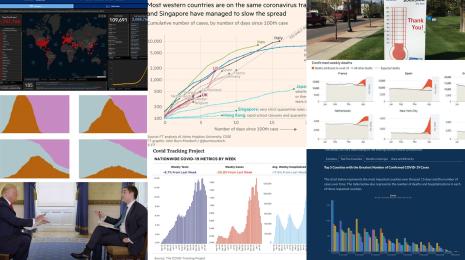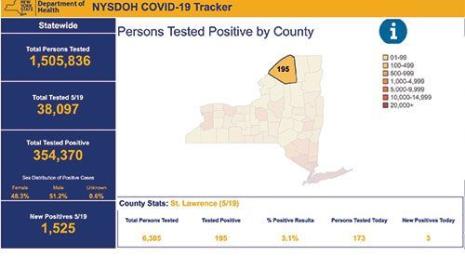Building trust in your data drives innovation

Editor's note: This article originally appeared in Forbes.
Now more than ever data is one of the most valuable assets an organization can have, especially when navigating the new normal. But to make great decisions, you and your people need access to data you can trust.
I recently sat down with Chief Data Officers from a health organization and the public sector to hear how trusted data is driving transformation and innovation in their organizations—from connecting essential public services to accelerating the search for treatments for critically ill patients with Covid-19. From our conversation, three main themes emerged on why you should build trust and confidence in your data to help lead your organization toward a better tomorrow.
Trusted data can make a real impact
Everyone using the same trusted data source means you can more easily make adjustments and move forward with your plans.
Quantum Leap Healthcare Collaborative is a San Francisco Bay Area charitable organization that integrates clinical research with patient care to improve and save lives and is the sponsor of the high-profile adaptive platform I-SPY TRIALs. Data is critical to the organization’s decision-making process. The group focuses on cancer treatments, and data helps them track patient enrollment and control costs so they can serve as many people as possible.
Chief Data Officer Adam Asare said that the shift to seeing data in real time using drill-down dashboards will help them better evaluate drug safety and efficacy in trials. They’ve even expanded their datasets to include patient feedback on their clinical care delivery. This will allow them to see both patient and provider perspectives side-by-side, which helps them develop better drugs with fewer negative side effects.
Empowering their clinicians to see results in real time and drill down into metrics is a positive change that has long been anticipated for a group that was previously dependent on static tables, reports, and PDFs.
“It actually engages our user base,” Asare said. “People are excited to have the opportunity to be empowered to do analysis on their own and not have it predefined in a static report. We have more real-time feedback, and questions that need to be addressed are done in a more timely manner.”
A powerful and flexible data strategy means you're always prepared to make better decisions, faster
When you have trusted data shared across siloed agencies, departments, and programs, it can have a real impact in finding information gaps, eliminating duplicated effort, and getting the right information and services to people who need it most.
Jon Gottsegen, Chief Data Officer from the State of Colorado, told us that’s a primary driver behind the state’s plan to connect various data. He said they are currently building the foundation for data interoperability among departments by developing an API-based integration strategy and focusing on data governance.
“One of our big projects coming up is data interoperability with [the Department of] Human Services and Medicaid and Medicare agencies to get the right data to the right people at the right time for the right purpose,” Gottsegen said. “That is really important to understand the relationships between programs. And we need better data governance across the state, so we’re looking at integration and enterprise BI services to help people make sense of that data.”
The Colorado Governor’s office also tracks agency data through public-facing dashboards showing how agencies are meeting their goals. And they’re using data to understand relationships between issues, like housing and health, so they can provide better services to help more Coloradans.
Trusted data in place leads to faster, greater innovation
When you have a trusted data system in place, it clears the way to focus on innovation.
Quantum Leap Healthcare and State of Colorado provided great examples of how the data they’re using today is also sparking innovation for tomorrow.
Gottsegen says his vision is for people to discover all the state services for which they qualify in one easy interaction instead of going to various agencies for support. “If we can really expedite and ease the way they can get these services so that an individual can go into one office and get the services they need to improve their welfare, that’s where the rubber meets the road,” he said.
Quantum Leap Healthcare is the sponsor of one of the longest and most successful platform trials in oncology. Asare says that it typically may take 10 to 15 years to get a drug to market. Using early endpoints and a platform trial, they are successfully shortened that timeline. “Using the same data-driven approach in real time during the trials, instead of after the trial, we will be able to get the right drug to the right patient, and will optimize individual patient outcomes going forward” he said. “We’re transferring that approach to the Covid trial.”
Asare’s hope is that Quantum Leap Healthcare’s data-driven model will drive the development of Covid-19 treatments for critically ill patients in a shorter timeframe than the typical drug development cycle. As the race for treatments and vaccines continue around the world, tracking and monitoring real-time results will be vital for any organization working to bring it to market.
Data is a primary driver of change
As these two organizations show us, especially in medical research and the public sector, a decision made too late can cost people vital benefits or unnecessarily delay life-saving care.
No matter your industry, everyone across your organization should be empowered with the right data to make the right decisions at the right time. They should be able to connect across different sources of trusted data to get the full picture. And that’s when you not only adapt to change, but you are free to innovate and create real impact.
That is the power of data.
관련 스토리
Subscribe to our blog
받은 편지함에서 최신 Tableau 업데이트를 받으십시오.








